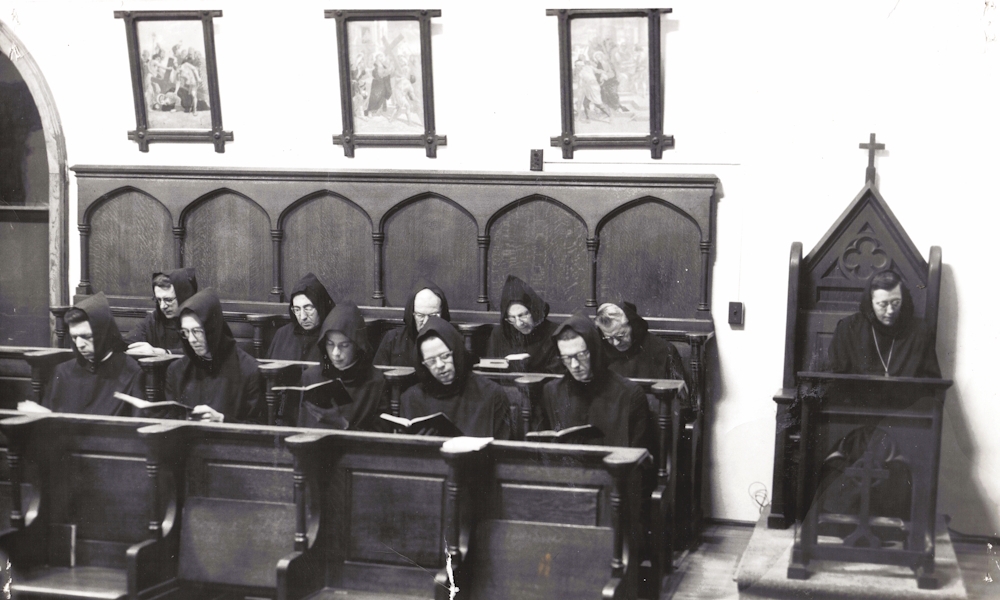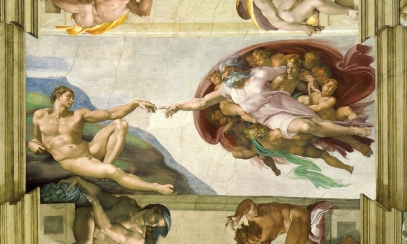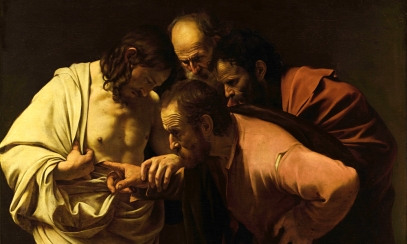
Why can’t I stay consistent in my prayer life?
If there’s one thing that monks do a lot, it’s pray. As one monk of our monastery said, “Monks are professional pray-ers.” We devote many hours of our day to praying — both in community and in the privacy of our cells. But, just because monks pray a lot doesn’t always mean that we’re particularly “good” at praying.
If there’s one thing that monks do a lot, it’s pray. As one monk of our monastery said, “Monks are professional pray-ers.” We devote many hours of our day to praying — both in community and in the privacy of our cells. But, just because monks pray a lot doesn’t always mean that we’re particularly “good” at praying.
Many people outside the monastery assume that prayer comes easily to monks. I can assure you that is not true! Prayer, like any service to God, has ups and downs, joys and difficulties. Believe it or not, even monks struggle to stay consistent in prayer. We struggle to stay focused and attentive, and even be on time to our community prayers! But, we didn’t become monks because we were good at praying; we became monks because we wanted to be good at praying.
Thus, we monks follow more than 1,500 years of wisdom from St. Benedict and his followers about how to pray well. The Rule of St. Benedict, which guides the pattern of our life as monks, has a lot to say about praying. From nitty gritty details of which Psalms to say on what days to spiritual advice about how we should pray, St. Benedict has some wonderful suggestions about prayer. Allow me to suggest three ideas from St. Benedict’s Rule which may help you stay consistent in your prayer life.
“We must know that God regards our purity of heart and tears of compunction, not our many words. Prayer should therefore be short and pure, unless perhaps it is prolonged under the inspiration of divine grace. In community, however, prayer should always be brief …”
St. Benedict, in his Rule, is quick to point out that more words don’t necessarily equal better prayer. More important than the length of our prayer is the disposition of our heart during prayer. Sometimes when we begin to develop a routine of prayer, we make it long and complicated. Our prayer can become so cumbersome that we give up and become discouraged. Therefore, St. Benedict reminds us that prayer should be “short and pure.” If you’re struggling to pray, don’t start by deciding to pray for two hours straight! Begin with 10 minutes of time devoted completely to God.
“On hearing the signal for an hour of the Divine Office, the monk will immediately set aside what he has in hand and go with utmost speed… Indeed, nothing is to be preferred to the work of God.”
St. Benedict knows that we humans are forgetful. We’re not good at responding after we’ve been told once. We usually need to be reminded many times, even of the simple things in our life. That’s why St. Benedict wants the monks to pray many times a day. If we just prayed once a day, we might forget God the rest of the time. Therefore, St. Benedict wants his monks to pray every few hours. That’s good advice for all Christians. As we mentioned, prayer doesn’t have to be long, but it should be frequent. In the monastery, we monks have bells in each room which sound when it’s time to pray. Maybe you could set an alarm on your phone three or four times a day. When that signal goes off, you could pray for a few moments. St. Benedict says that stopping for God has to be our priority, or in his words, “Nothing is to be preferred to the work of God [prayer].”
“We believe that the Divine presence is everywhere and that in every place the eyes of the Lord are watching the good and the wicked. (Prv 15:3) Let us consider, then, how we ought to behave in the presence of God and His angels, and let us stand to sing the psalms in such a way that our minds are in harmony with our voices.”
When we pray, we can sometimes feel alone. That feeling of doing something alone can be discouraging, especially when we’re young. But, prayer is the exact opposite of something lonely. St. Benedict points out that at all times, especially when we pray, God and His angels and saints are present to us. Instead of praying alone, we do so with a “great cloud of witnesses,” as the Book of Hebrews says. When we call upon the angels and saints, especially our guardian angel and patron saints, we realize just how supernatural our prayer really is. Our prayer is an amazing gift because, after all, through prayer we can communicate with the living God!
Father Paschal Pautler, O.S.B., is a monk and priest of St. Bernard Abbey in Cullman. Hailing from Birmingham, Father Paschal was educated by the Nashville Dominican Sisters at St. Rose Academy and then by the Monks of St. Bernard Abbey at St. Bernard Preparatory School. After graduation from high school, he entered the monastery. He was ordained a priest in 2023, and he presently serves as the Development Director for St. Bernard Abbey and Preparatory School.



